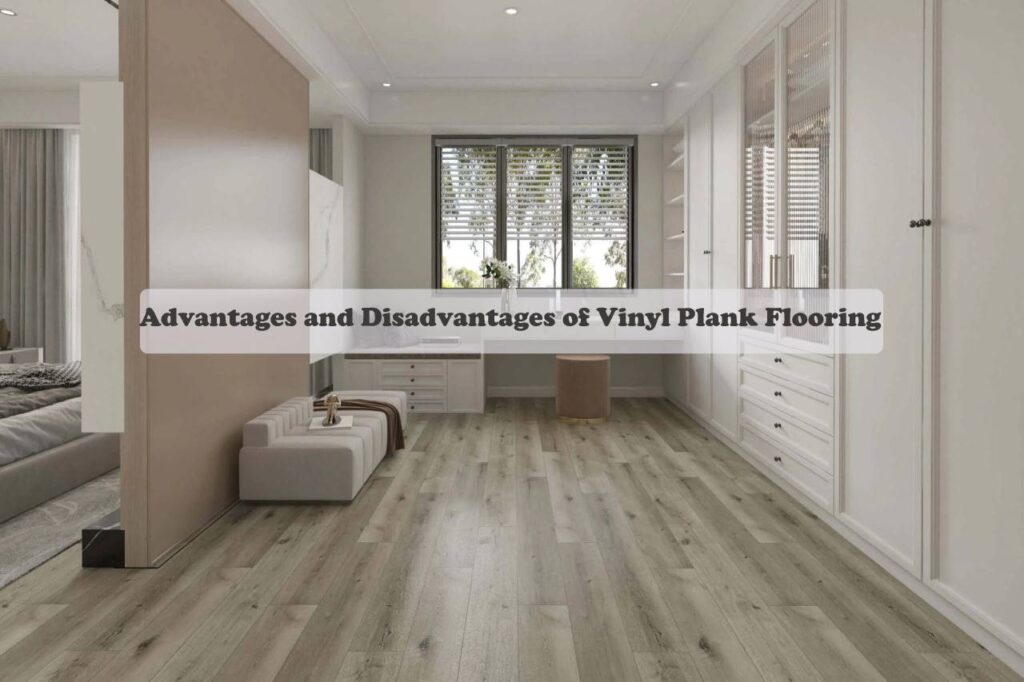Vinyl plank flooring has surged in popularity, and for good reason. This versatile option offers a realistic hardwood look at a fraction of the cost, all while being surprisingly durable and easy to maintain. But is vinyl plank flooring the perfect choice for your home? Like any material, it has both advantages and disadvantages.
Dex Flooring offers a wide variety of high-quality vinyl plank flooring options to suit your style and budget. Whether you’re drawn to the timeless elegance of light woods or the modern sophistication of grey tones, we have the perfect plank to elevate your space.
Visit your nearest Dex Flooring location or browse our extensive collection online to experience the vinyl plank flooring difference. Dex Flooring – Beautiful Floors, Easy Living.
This guide will help you weigh the advantages and disadvantages of vinyl plank flooring to determine if that is the right fit for your needs and budget.
Advantages of Vinyl Plank Flooring
Vinyl plank flooring has become a homeowner’s dream, offering a treasure trove of advantages at an attractive price. Here’s why it stands out:
- Budget-Friendly: Compared to natural materials like hardwood or stone, vinyl planks are significantly more affordable, making it an easy choice for cost-conscious homeowners.
- Style Chameleon: With a vast array of designs and colors, vinyl planks can mimic the natural beauty of wood and stone. This versatility allows you to create a floor that seamlessly complements your existing decor.
- Unfazed by Water: Highly water-resistant, vinyl planks are the perfect choice for moisture-prone areas like kitchens, bathrooms, and basements. They’ll handle spills and dampness without any warping or buckling.
- DIY Delight: Most vinyl planks boast a click-lock or adhesive backing system, making installation a breeze. This allows you to tackle the project yourself and save on professional installation costs.
- Comfort Underfoot: Forget the chill of traditional tile floors. Vinyl planks provide a warmer and more comfortable surface, especially during colder months.
- Effortless Maintenance: Keeping vinyl planks looking their best is a breeze. Regular sweeping and occasional mopping are all it takes for a clean and beautiful floor.
- Built to Last: Scratch and dent-resistant, vinyl planks can withstand the wear and tear of high-traffic areas and homes with pets or children.
- Impact Absorbent: Ideal for large families or commercial spaces, vinyl planks excel at absorbing impact, making them a hard-wearing and long-lasting flooring solution.
- DIY Installation Friendly: Constructed for a straightforward installation process, vinyl planks empower you to take on the project yourself, saving on labor costs.
Disadvantages of Vinyl Plank Flooring
While vinyl plank flooring offers a compelling list of advantages, it’s important to consider some potential drawbacks before making your final decision:
- Limited Lifespan: Compared to natural materials like hardwood or stone, vinyl planks generally have a shorter lifespan. High-quality options might last 15-20 years, but high-traffic areas may require sooner replacement.
- Vulnerable to Sharp Objects: Despite scratch resistance, sharp objects like furniture legs or pet claws can leave permanent marks on vinyl planks.
- Fading in the Sun: Direct sunlight can lead to fading and discoloration of vinyl planks over time. Consider sun exposure when choosing your flooring.
- Environmental Impact: Some vinyl planks contain PVC and phthalates, raising environmental and health concerns. Opt for eco-friendly alternatives made with safer materials.
- Aesthetic Trade-Off: While realistic, vinyl planks may not possess the same luxurious feel as genuine hardwood or stone, potentially impacting your property’s perceived value.
- Repair Challenges: Repairing damaged vinyl planks can be difficult. Often, individual planks require replacement, which can be time-consuming and expensive.
- Reduced Insulation: Vinyl planks offer less insulation compared to carpet or some other materials, potentially affecting energy efficiency and soundproofing.
Conclusion: Finding the Perfect Fit
Vinyl plank flooring offers a compelling combination of affordability, style, and practicality. With its water resistance, easy maintenance, and comfortable feel, it’s a strong contender for various spaces. However, its shorter lifespan, potential environmental concerns, and limitations in repairability are crucial factors to consider. Ultimately, the decision boils down to your budget, priorities, and lifestyle. If you prioritize affordability, ease of maintenance, and a water-resistant floor, vinyl planks could be the perfect solution.
FAQs:
Q: Are wide vinyl planks more in style?
A: Absolutely! Wider planks create a more seamless and luxurious look, mimicking the look of wider hardwood floorboards.
Q: What are some popular vinyl plank floor colors?
A: Light and natural wood tones remain a timeless favorite. However, greys and taupes are gaining popularity for their modern aesthetic. For a bolder statement, consider darker woodgrain patterns.
Q: Are there waterproof vinyl plank options?
A: Yes! Look for planks labeled as “waterproof” or “luxury vinyl tile (LVT)”. These options are ideal for areas with high moisture exposure.
Q: Are there eco-friendly vinyl plank options available?
A: Fortunately, yes! Several manufacturers offer vinyl planks made with recycled content or phthalate-free materials. Look for certifications like FloorScore or Green Label for peace of mind.

